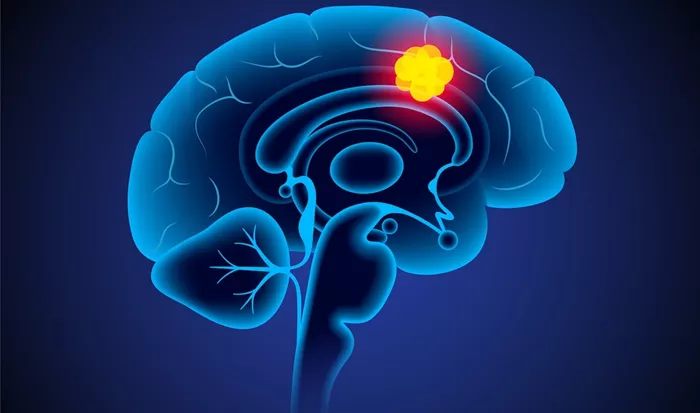A new study has found that gabapentin — a commonly prescribed medication for nerve pain and seizures — may help extend the lives of patients with glioblastoma, the most aggressive form of brain cancer. The findings provide new hope for patients facing this devastating disease, where treatment breakthroughs have been rare.
1. Study Highlights Link Between Gabapentin and Survival
Researchers from Mass General Brigham examined medical records from nearly 700 glioblastoma patients, many of whom were already taking gabapentin for nerve pain. They found those who used the drug lived an average of 16 months — four months longer than those who didn’t take it.
The results were recently published in Nature Communications, and the lead author, Dr. Joshua Bernstock of Brigham and Women’s Hospital, emphasized the significance of this improvement. “It’s always incredible to see a hypothesis come to life,” he said.
2. What Is Glioblastoma?
Glioblastoma is the most common and aggressive primary brain tumor in adults. It spreads quickly and is notoriously difficult to treat. Standard treatment typically includes surgery, radiation, and chemotherapy, yet the average survival time remains around 12 to 15 months.
With a five-year survival rate of just 6.9%, according to the Mayo Clinic, even small improvements in outcomes are considered meaningful.
3. The Role of Gabapentin in Brain Cancer
Gabapentin is widely used to relieve nerve pain and prevent seizures. It was approved by the U.S. Food and Drug Administration (FDA) in 1993 and is often used off-label for various types of chronic pain.
Researchers had been intrigued by earlier animal studies suggesting gabapentin might have anti-tumor effects. Building on those studies, the Mass General Brigham team analyzed patient data to look for real-world patterns in outcomes.
Their findings suggest a potential connection between gabapentin use and longer survival in glioblastoma patients — possibly due to its interaction with tumor-related neural activity.
4. Additional Support from UCSF Research
To further validate the findings, the team collaborated with scientists at the University of California, San Francisco. Analyzing another 379 glioblastoma patients, they observed a similar outcome: Patients who took gabapentin lived on average 20.8 months, compared to 14.7 months for those who did not.
Overall, across both data sets (over 1,000 patients total), the survival benefit remained statistically significant.
5. Potential Biomarker Identified
In addition to the extended survival, researchers noticed lower levels of a protein called thrombospondin-1 (TSP-1) in patients taking gabapentin. This protein could play a role in glioblastoma progression, and its reduction may be linked to better outcomes.
While promising, this potential biomarker requires further study.
6. Caution: More Research Is Needed
Despite the encouraging results, researchers caution that the findings are based on a retrospective analysis. This means patients were not randomly assigned to receive gabapentin, so there may be unknown factors influencing the outcomes.
Dr. Bernstock emphasized that while gabapentin is already approved and commonly used, it’s too early to recommend it broadly for glioblastoma patients outside of clinical trials. “It’s not appropriate to change clinical practice based on these findings alone without a controlled study,” he said.
7. Gabapentin: What to Know
Gabapentin is generally well-tolerated, but it can cause side effects such as:
- Fatigue
- Dizziness
- Nausea
- Headache
- Memory issues
- Movement or vision problems
Patients taking gabapentin should do so under a doctor’s supervision, especially if they are also using other medications.
8. Who Might Benefit Right Now?
While the findings are not enough to shift standard treatment practices, gabapentin could be considered in specific situations. For example, glioblastoma patients who experience nerve pain or seizures after surgery might benefit from gabapentin over other medications.
According to Bernstock, the study suggests there may be a therapeutic advantage to using gabapentin more readily in those cases — but further studies are needed to confirm this.
9. Looking Ahead: Clinical Trials and Next Steps
The researchers hope to launch larger, prospective clinical trials to determine whether gabapentin can truly improve survival in glioblastoma patients. These trials would involve randomly assigning patients to receive gabapentin or a placebo to assess its direct effect on tumor progression and survival.
There is also interest in further studying TSP-1 as a possible biomarker to identify which patients are most likely to benefit.
10. A Glimpse of Hope in a Difficult Diagnosis
For patients with glioblastoma and their families, any potential advance is welcome news. Given the disease’s grim outlook and limited treatment options, the discovery that a well-known and accessible medication like gabapentin could extend life is both practical and hopeful.
Still, doctors and patients are urged to wait for additional clinical evidence before making changes to treatment protocols.
Key Takeaways:
- Gabapentin, a common pain and anti-seizure drug, may extend survival in glioblastoma patients.
- Two large patient groups showed a consistent survival benefit.
- Side effects are manageable, but use should be monitored.
- More rigorous studies are needed before gabapentin becomes a standard part of brain cancer treatment.
For now, the research offers a promising lead — and a reminder that sometimes, life-extending treatments might already be in doctors’ toolkits, just waiting to be rediscovered.
Related topics:
- FDA Limits Fall Covid Vaccines to High-Risk Groups, Healthy Kids Excluded
- Last Prostate Cancer Test for Biden Was Over a Decade Ago
- Hidden Risks in Wheat Bisks: Nutritionist Reveals What to Avoid


